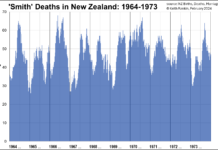Source: The Conversation (Au and NZ) – By James Chin, Professor of Asian Studies, University of Tasmania
It’s been some journey for Anwar Ibrahim, the new Malaysian prime minister appointed last month. It took 24 years to go from being the country’s deputy prime minister in 1998 to becoming the prime minister today, at 75 years old. Along the way, he was jailed twice, found guilty on charges of sodomy, beaten up by the police commissioner, charged with corruption and finally, received a royal pardon.
Many consider Anwar to be one of the only real Muslim democrats fighting to keep Malaysia multiracial and multicultural. On the surface, this was the fairytale ending for that fight.
No single coalition won the bare majority required to form government when the election results were announced on November 19. After five days and direct intervention by the king and the Malay Rulers, Anwar was picked to be the prime minister after proving he could cobble together a majority coalition under Pakatan Harapan (The Alliance of Hope).
It’s likely many Western governments breathed a sigh of relief on seeing Anwar triumph, as the other leading coalition, Perikatan Nasional (National Alliance), was running on a conservative, nationalistic Islamic platform. There wasn’t a single ethnic Chinese or Indian elected under the Perikatan Nasional, despite the fact non-Malays make up at least one-third of the population.
Anwar’s coalition, on the other hand, had more than 40 elected Chinese and Indian MPs.No wonder many are calling the Anwar administration the “New Malaysia”. Yet the challenges facing Anwar are colossal.
A divided Malaysia
Malaysia after the polls is a totally divided country. The two biggest parties in parliament are Parti Islam Malaysia (part of the conservative Perikatan Nasional) and the Democratic Action Party (part of Anwar’s Pakatan Harapan coalition). Parti Islam Malaysia won 49 seats, making it the largest single party in the 222-seat parliament. The Democratic Action Party is the second largest party with 40 seats.
Parti Islam Malaysia, as the name suggests, wants Malaysia to be a fully-fledged Islamic state, including throwing out the current constitution and Westminster style of government. It also strongly believes non-Muslims in Malaysia shouldn’t enjoy full political rights, but instead be treated as “dhimmi”.
Dhimmi is an Islamic term for non-Muslims living in an Islamic state. Often translated into English as “protected person”, a dhimmi doesn’t enjoy equal political rights as a Muslim and must pay a special tax to the Islamic state to retain their protected status. This status includes rights like property, life and the right to follow non-Islamic religions.
Among Islamic scholars there are disputes over exactly what a dhimmi person is entitled to under an Islamic state, but they all agree a dhimmi isn’t recognised as a full citizen, as understood by the West, in an Islamic state.
The Democratic Action Party is totally opposite to Parti Islam Malaysia. Largely supported by non-Malays (receiving about 90% of the ethnic Chinese vote), it believes in a liberal, secular Malaysia where everyone enjoys the same political rights.
The majority of the Malay community is becoming more conservative and supports Parti Islam Malaysia, while most non-Muslims are equally strong in supporting the liberal, secular Democratic Action Party. Since their ideologies are poles apart, we are really looking at two different Malaysias.
Racial politics
If that wasn’t complicated enough, people often forget there’s a third distinct political circle. There are two Malaysian states on the island of Borneo – Sabah and Sarawak. They are totally different from Peninsular Malaysia in terms of history, demography, language and culture.
Sabah and Sarawak are very multiracial. Interracial and intercultural marriages are common, and there’s little in the way of a religious divide. While political Islam is trying to make headway in both states, locals have made it clear they reject the extreme form of Islam promoted by Parti Islam Malaysia.
For the past half century, the peoples of Sabah and Sarawak have watched the obsession with racial politics and the rise of political Islam in the peninsular with bewilderment and fear. Many remember a time prior to the 1970s when Islam in the region was not used as a weapon in the political arena.
Political Islam in Malaysia only really took off after the 1979 Iranian revolution and the influx of Saudi money for spreading Islam in the region in the 1980s.
Many in Malaysia saw the rise of political Islam, but nobody expected it to arrive so soon. For years people were warning that “identity politics” had taken over the Malay community and it was more or less unstoppable.
Parti Islam Malaysia had been laying the groundwork since the 1990s by building private Islamic kindergartens, Islamic high schools, and Tahfiz schools (Quran memory schools). This indoctrination was allowed to proceed because the Malaysian authorities were afraid of offending the religious establishment, and the state itself was in competition with Parti Islam Malaysia to show who was more Islamic.
So we have three different Malaysias: Parti Islam Malaysia’s Islamic version, the Democratic Action Party’s secular version, and the pluralistic Borneo version.
Can Anwar Ibrahim, the man who wrote a book on “his vision for a more tolerant, pluralistic Asia”, bring the three into a single modern, progressive state?
I don’t know, but I hope he succeeds. Malaysia has all the elements to be a successful progressive Muslim country, rather than the polarised country it is today.
![]()
James Chin does not work for, consult, own shares in or receive funding from any company or organisation that would benefit from this article, and has disclosed no relevant affiliations beyond their academic appointment.
– ref. The daunting task facing new Malaysian prime minister Anwar Ibrahim: uniting a divided country – https://theconversation.com/the-daunting-task-facing-new-malaysian-prime-minister-anwar-ibrahim-uniting-a-divided-country-195890








